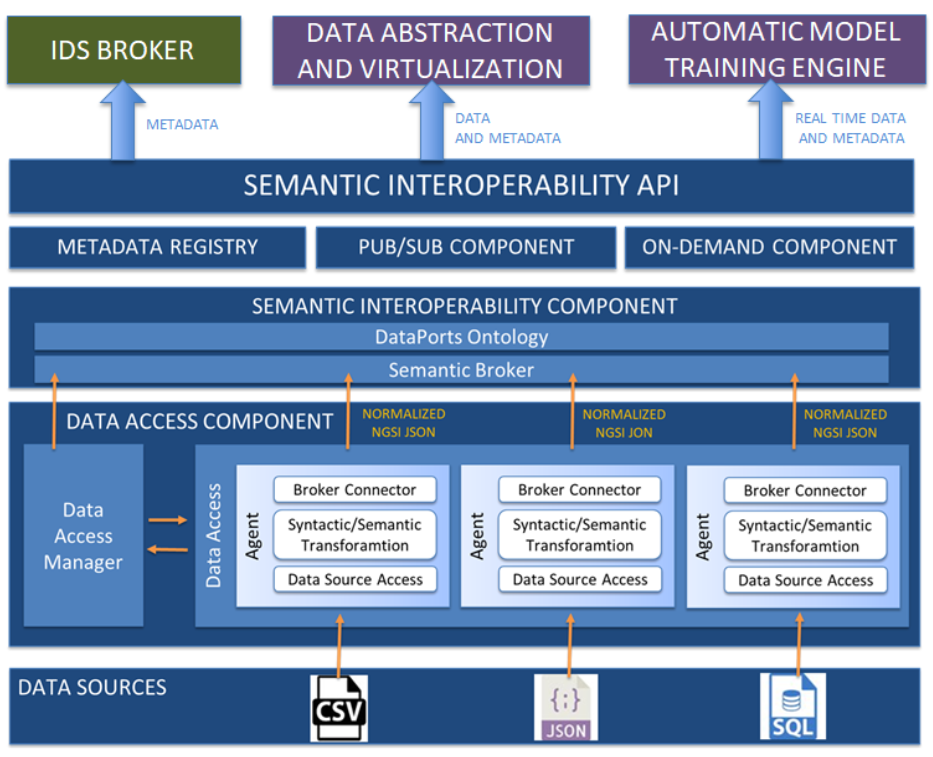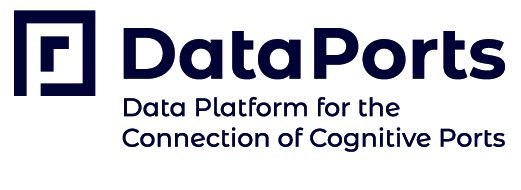The deliverable that describes the need for scalability and interoperability in the seaport context is available.
The digital transformation of the ports towards the Fourth Industrial Revolution is revealing opportunities related to the add-on services that can be provided. Port platforms are now integrating available data sources, capturing the potential needs that arise from the increased demand for more accurate and complete information. The value of that new trend is also boosted by the new wave of start-ups that implement over-the-top services. However, most port authorities are not technologically ready to host these services and frameworks. The necessary technology infrastructure has diametrically opposite requirements to the one that is deployed. The same drawback applies to the architecture where in most cases must be shifted to serverless oriented solutions.

A cognitive service is a software component that uses AI and Big Data capabilities to solve a business task. Cognitive services are ready-to-use solutions to be integrated in the context of software products for improving the decision-making process related with data. Some cloud providers offer general cognitive services such as image classification or natural text recognition / translation. However, this novel paradigm has not been applied in the ports domain. Ports share common business tasks in which cognitive services could provide answers. Some examples are the prediction of the Expected Time of Arrival (ETA) of a container or a vessel, the truck turnaround time to deliver a container to a terminal, or the definition of a booking system to reduce environmental impact. The main goal is to build such services to be generic enough to be applied in different ports and use cases. To enable the cognitive services approach envisioned in the context of the project, the DataPorts platform must address the following technical challenges:
- One issue to address is to enable the data sharing between an undefined number of port stakeholders, such as terminal operators, port authorities, logistic carriers and so on. The accuracy of cognitive services is directly related with the amount of available data. For building such a data ecosystem, the defined architecture must include scalability as its first design principle.
- Scalability for AI Training: Training models for cognitive services is a time-consuming task even with a powerful computing infrastructure for supporting it. As the state of the art evolves, new frameworks and techniques must be tested in order to find the optimal one, that which provides the most accurate results for the problem at hand. A cognitive service vision implies that no specific know-how from the data science domain is required: the end-user is the one that defines the training process, with little manual intervention. This fact leads to the definition of several training alternatives, which must run simultaneously over a distributed infrastructure.
- Heterogeneous data processing: The seaports domain is one in which several IT infrastructures, information systems like TOS or IoT sensing devices, are potential candidates to become a valuable data source. In this scenario, two main challenges arise: how to deal with the heterogeneity of data sources (formats, schema, etc.) and with an undefined volume of data.
- A trusted data governance: Ownership of the data is a key issue in any discussion related with data sharing between different organizations. To enhance the data sharing needed to build cognitive services, the DataPorts platform must first provide a trusted framework for defining data-sharing rules to specific users, roles and organizations. This framework must also enforce that the data is used following the specifications the data owner has formally defined. Data management, when this data is outside the boundaries of the organization, is a challenge which requires a set of trusted software components and clear security procedures.
The deliverable describes how we expect to address these overall challenges in terms of scalability, interoperability and standardization.
All this information is available here.
